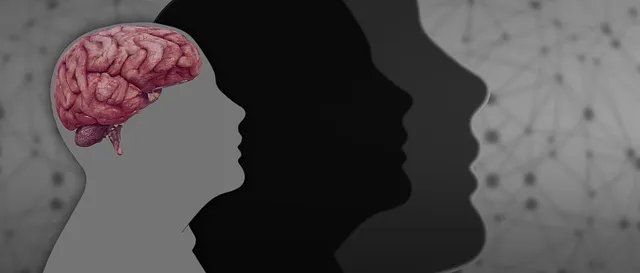The Kaiser Permanente Mental Health Access Center in Longmont provides vital crisis intervention services, offering immediate assistance and evidence-based techniques to stabilize individuals during emotional crises. They empower clients with coping strategies through individual counseling, group therapy, workshops, and journaling exercises, fostering long-term mental resilience. Their holistic approach includes comprehensive assessments, risk factor consideration, and tailored interventions like the Community Outreach Program. By integrating CBT, mindfulness, community outreach, and ongoing support, the center strengthens networks and promotes personalized, comprehensive care for crisis response and community resilience building.
“In times of crisis, effective intervention strategies are vital. This article explores essential guidance for navigating critical situations, focusing on the role of the Kaiser Permanente Mental Health Access Center in Longmont as a beacon of support. We’ll delve into understanding crisis intervention, identifying distressing scenarios, and employing evidence-based tactics. Additionally, we’ll highlight post-intervention care and community resources available in Longmont, emphasizing the comprehensive support network aimed at fostering resilience and recovery.”
- Understanding Crisis Intervention: A Brief Overview
- The Role of Kaiser Permanente Mental Health Access Center in Longmont
- Identifying and Assessing Crisis Situations
- Evidence-Based Strategies for Effective Intervention
- Post-Intervention Support and Community Resources in Longmont
Understanding Crisis Intervention: A Brief Overview

Crisis intervention is a critical component of mental health support, designed to provide immediate assistance during times of severe emotional distress or impending danger. At the Kaiser Permanente Mental Health Access Center in Longmont, professionals are trained to offer effective guidance during such moments, focusing on stabilizing individuals and preventing further deterioration. This swift action is vital for managing acute situations, be it a sudden breakdown, suicidal ideation, or an individual’s reaction to traumatic events.
The approach often involves active listening, empathetic communication, and the use of evidence-based techniques. One powerful tool in the crisis intervention arsenal is mental wellness journaling exercise guidance, which encourages individuals to process their emotions through writing. Additionally, designing comprehensive Mental Health Education Programs can equip people with coping strategies, fostering better mental resilience. Such programs, tailored to diverse needs, contribute to improving overall well-being and offering long-term solutions, ensuring individuals have the resources to navigate future challenges.
The Role of Kaiser Permanente Mental Health Access Center in Longmont

The Kaiser Permanente Mental Health Access Center in Longmont plays a pivotal role in addressing and mitigating mental health crises within the community. This specialized center offers a range of services tailored to support individuals facing various psychological challenges. By providing easy access to mental health professionals, it ensures that residents can receive prompt assistance, a critical factor in managing acute situations.
One of its key contributions is empowering individuals with self-esteem improvement techniques and coping skills development. The center facilitates this through individual counseling sessions, group therapy, and educational workshops designed to enhance resilience and promote healthy coping mechanisms. Additionally, the Mental Wellness Journaling Exercise Guidance offered at Kaiser Permanente encourages reflection and introspection, enabling clients to track their emotional well-being and progress.
Identifying and Assessing Crisis Situations

Identifying a crisis situation is the first crucial step in providing effective intervention. At the Kaiser Permanente Mental Health Access Center Longmont, professionals are trained to recognize signs of distress, whether it’s an individual experiencing acute anxiety, severe depression, or a full-blown psychiatric emergency. This involves assessing the individual’s immediate needs and risk factors, including their current state of mind, access to resources, and potential triggers. By utilizing evidence-based assessment tools, the center ensures a comprehensive understanding of each client’s unique circumstances.
The process often includes gathering information through open-ended conversations, observing verbal and non-verbal cues, and reviewing personal history. This holistic approach allows for tailored interventions, such as those provided through the Community Outreach Program Implementation, which aims to connect individuals with community resources and support systems. Additionally, promoting Self-Care Routine Development for Better Mental Health is an integral part of crisis assessment, empowering clients with coping strategies to manage future challenges. Early identification and timely intervention can prevent escalation and contribute to effective depression prevention measures.
Evidence-Based Strategies for Effective Intervention

In addressing crises effectively, evidence-based strategies have proven to be invaluable tools. The Kaiser Permanente Mental Health Access Center in Longmont emphasizes a multi-faceted approach that includes techniques like cognitive-behavioral therapy (CBT) and mindfulness practices, which have shown significant success in treating various mental health conditions. These strategies not only help individuals cope with immediate distress but also empower them to develop inner strength and enhance their self-esteem.
The Longmont center’s holistic view of crisis intervention includes initiatives like community outreach program implementation, focusing on fostering connections and support networks. By integrating these evidence-based methods, the Kaiser Permanente Mental Health Access Center ensures that individuals receive comprehensive care tailored to their unique needs, promoting long-term mental well-being. This approach reflects a commitment to not just responding to crises but also empowering communities to build resilience.
Post-Intervention Support and Community Resources in Longmont

After a crisis intervention, providing ongoing support is essential to help individuals and communities recover and rebuild. Longmont, Colorado, offers valuable resources through its Kaiser Permanente Mental Health Access Center. This center serves as a hub for those seeking mental health services, promoting early intervention and continuous care. The center’s team of professionals provides specialized support, including therapy sessions, peer counseling, and education on self-esteem improvement to foster resilience.
Additionally, Longmont community resources play a vital role in crisis intervention aftermath. Local organizations and support groups cater to various needs, from burnout prevention for mental health professionals to risk management planning. These initiatives ensure that individuals have access to a network of support, addressing not only immediate crises but also long-term mental well-being. By combining professional care and community engagement, Longmont creates a comprehensive system aimed at enhancing the availability of mental health resources.
Crisis intervention plays a vital role in supporting individuals facing mental health challenges, especially in communities like Longmont where resources such as the Kaiser Permanente Mental Health Access Center are instrumental. By understanding crisis situations, implementing evidence-based strategies, and providing post-intervention support, we can foster a more resilient community. The guidance outlined in this article, combined with local resources like the Kaiser Permanente mental health access center in Longmont, equips professionals and bystanders alike to make a meaningful difference during crises, ultimately enhancing the well-being of our neighbors.






